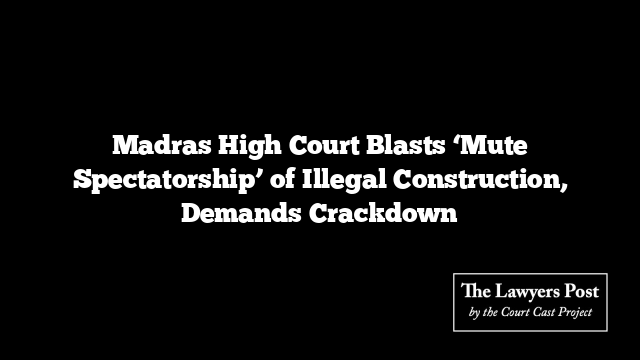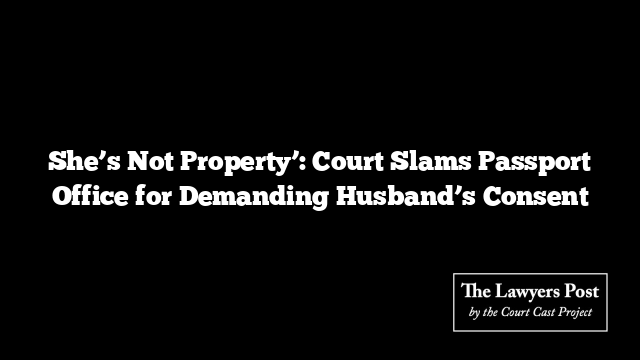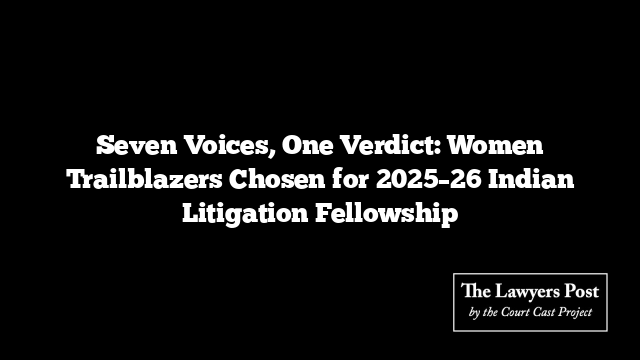The Madras High Court didn’t mince words as it slammed state authorities for standing by in silence while fertile land is swallowed whole by unauthorized buildings and unchecked greed. The court said what everyone thinks but few say out loud: that government inaction is empowering the brazen and bulldozing the law.
A bench of Justice SM Subramaniam and Justice AD Maria Clete delivered the scathing remarks while hearing a plea over an illegally constructed rice mill in Tiruchirappalli. The case became a larger reckoning for how rampant, unauthorized construction has turned large swathes of Tamil Nadu—rural and urban—into unregulated concrete hives.
The judges pulled no punches. “Greedy men are emboldened… converting fertile lands into concrete jungle,” the bench lamented, holding up the mirror to years of systemic apathy. “Inaction by authorities shall not be tolerated. Such conduct is a betrayal of lawful citizens and a disservice to public safety.”
The Court underlined that the rise of unauthorized buildings isn’t just an inconvenience—it’s a threat to communities, the environment, and basic civic peace. And yet, despite past orders and a state-backed High Level Monitoring Committee created for this very purpose, nothing meaningful has shifted.
“The authorities remain mute spectators,” the Court noted. “They allow illegal construction indiscriminately, prejudicing the lives of neighbours, road users, and the public.”
The Court called out the state’s monitoring committee for being all title and no teeth. Though established to oversee illegal construction post earlier court directives, there was “no clarity” on whether the committee had functioned at all. The judges went a step further and added the Chief Secretary of Tamil Nadu as a party to the case, ordering direct accountability.
The Chief Secretary must now ensure the committee meets monthly, submits reports, and takes action—not just on paper, but on the ground. Any lapse in duty will be met with consequences, the Court warned.
On the larger issue of retroactive approvals, the Court made its stance crystal clear: you don’t get to build first and ask permission later. “Regularisation is not a right. It’s an exception. If allowed routinely, the entire law collapses into irrelevance.”
In the rice mill case, the owner claimed he was caught in a personal dispute and had tried applying for permission. He begged the Court to halt any demolition, promising to regularise the structure. The Court wasn’t moved. It ordered the authorities to demolish any part of the structure found unauthorized—within eight weeks.
With this verdict, the High Court didn’t just rule on a rice mill—it cracked down on the quiet collusion that has allowed illegal structures to fester across Tamil Nadu. Whether this marks a turning point or just another entry in a long file of ignored warnings remains to be seen.





